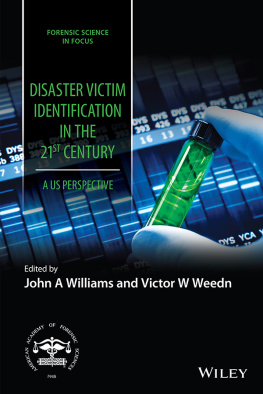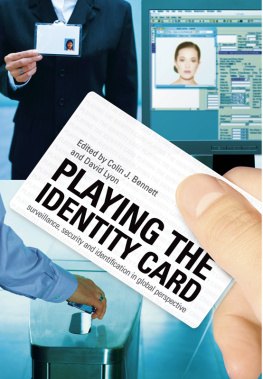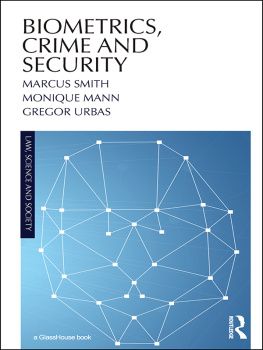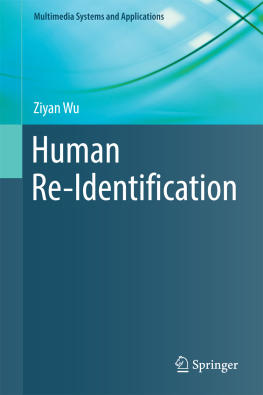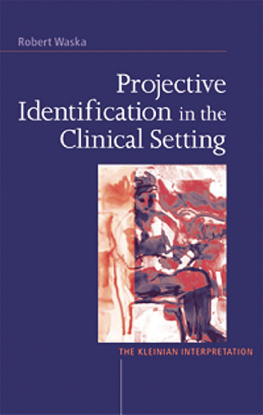Praise for
Identification Revolution: Can Digital ID Be Harnessed for Development?
Alan Gelb and Anna Diofasi Metz have done a remarkable job of studying recent advances in the sophistication of ID systems across the globe. They offer a unique lens on what is possible, what has been done, and more importantly, why it was done. This kind of a critical look at the design choices of an ID system is illuminating especially since they capture the context in which those decisions were taken. Legal identity to all is a development target in the SDGs, and many other SDG goals will depend on it. Hence, the developing world will need experts who understand the power and innovation capability of identity systems. With this book, Alan and Anna have shown their deep understanding of ID systems at a global level.
Nandan Nilekani
Co-founder and Non-Executive Chairman, Infosys; Founding Chairman, Unique Identification Authority of India; Co-founder and Chairman, EkStep Foundation
It is no exaggeration that there is an Identification Revolution and it is important and moving rapidly. [This books] masterful presentation brings the reader up to date, analyzing the potential benefits and pitfalls of biometric ID. This is a must-read for all those interested in economic development and the potential that the ID Revolution offers.
Anne O. Krueger
Senior Research Professor, Johns Hopkins School of Advanced International Studies; Senior Fellow, Stanford Center for International Development
Digital ID is fast becoming an essential tool for twenty-first century development. This book spells out in fascinating detail the opportunities and challenges, the perils and pitfalls of this digital ID revolution.
Ngozi Okonjo-Iweala
Board Chair, GAVI; former Finance Minister, Nigeria; former Managing Director, World Bank
This is a must-have manual for anyone interested in the important topic of identification systems as drivers of social and economic development. The book is written with exceptional depth and clarity compatible with the exceptional status of its authors as individuals who have followed and have contributed first hand to the advancement of our knowledge about the impact of identity systems on society. The book not only presents the positive consequences of identity schemes, but does a great job explaining some of their risks. The authors outline ways for how to address these risks and for how to channel identity systems within responsible frameworks that respect human rights, enhance gender equality, fight against discrimination, and protect privacy in various contexts.
I found the book sober, thoughtful, and pragmatic in its recommendations and thus [it] should be of great utility to practitioners from development agencies as well as government identity authorities and policymakers.
It is a pleasure to finally see a comprehensive and timely account that has staying powerone that I expect will remain a top reference in this field for many years to come.
Joseph Atick
Executive Chairman, ID4Africa; Executive Chairman, Identity Counsel International
Anyone interested in the current transformation of identification and registration systems underway internationallystudents, researchers, policymakers or implementersshould begin with this book.
Keith Breckenridge
Professor and Deputy Director, Wits Institute for Social and Economic Research
Methods for identification have been fundamental for human groups and for the scale of their political and economic activities throughout history. It is no accident that the first industrial nation, England, innovated the first nationwide identity registration system nearly 500 years ago. But ID systems can also be abused, resulting in terrible consequences. Digital ID in the age of the internet offers a transformative opportunity for citizens of the poorest states at last to acquire their rights to recognition, but it is equally vital that they be protected against potential abuses or exploitation of their economic vulnerabilities. Alan Gelb and Anna Diofasi Metz are to be thanked for their timely intervention in providing an authoritative review of this fast-changing field and its current best practices in, for instance, Estonia and Peru. This excellent book affords invaluable practical guidance for states and governments hoping to reap development gains while avoiding the serious pitfalls in engaging with this most important governance revolution of the third millennium CE.
Simon Szreter
Professor of History and Public Policy, University of Cambridge
IDENTIFICATION REVOLUTION

Can Digital ID Be Harnessed for Development?
ALAN GELB and ANNA DIOFASI METZ
CENTER FOR GLOBAL DEVELOPMENT
Washington, D.C.
Copyright 2018
CENTER FOR GLOBAL DEVELOPMENT
2055 L St. N.W.
Washington, D.C. 20036
www.cgdev.org
All rights reserved. No part of this publication may be reproduced or transmitted in any form or by any means without permission in writing from the Center for Global Development.
Library of Congress Cataloging-in-Publication data are available.
Names: Gelb, Alan H., author. | Diofasi Metz, Anna, author.
Title: Identification revolution : can digital ID be harnessed for development? / Alan Gelb, Anna Diofasi Metz.
Description: Washington DC : Center for Global Development, [2018] | Includes bibliographical references and index.
Identifiers: LCCN 2017035951 (print) | LCCN 2017054551 (ebook) | ISBN 9781944691042 | ISBN 9781944691035 (pbk. : alk. paper)
Subjects: LCSH: Biometric identificationEconomic aspects. | Sustainable development.
Classification: LCC HD9999.P3952 (ebook) | LCC HD9999.P3952 G45 2018 (print) | DDC 338.9dc23
LC record available at https://lccn.loc.gov/2017035951
9 8 7 6 5 4 3 2 1
Contents
Preface
D igital identification programs are being rolled out at a dizzying pace across the developing world. Within the last fifteen years, over sixty low- and middle-income countries have launched foundational national identification (ID) programs. In addition, many public and private entities have rolled out their own functional ID programs to serve a number of specific purposes, whether for registering voters, delivering social transfers, or enabling financial institutions to satisfy enhanced regulatory requirements. Advances in digital technology, notably multimodal digital biometrics and mobile technology, have greatly enhanced the capabilities of these systems and expanded their reach across a more mobile, digitally connected world.
Identification is, of course, only one manifestation of the explosive spread of digital technology, with all of its implications. It is, however, an important one: the identification revolution foreshadows a major change in the relationship between citizens and states. With the rollout of modern digital ID systems, citizens are becoming better equipped to exercise their rights and to prove with unprecedented certainty who they are, in both the physical and the virtual realms. ID systems offer the opportunity to regularize the situation of over a billion peopleoften the poorest and most vulnerable members of their communitywho today lack any effective proof of their identity. As for states, they can utilize their digital ID programs to deliver services and transfers with greater effectiveness, precision, and transparency than ever before.
In this book, Alan Gelb and Anna Diofasi Metz address the question of how to maximize the development impact of this identification revolution. Ensuring legal identity for all, including birth registration by 2030 has been recognized as Target 16.9 of the Sustainable Development Goals, but there is no consensus on exactly how to define legal identity in the development context and how to reach the target. As the book demonstrates, effective and inclusive identification systems can facilitate the achievement of this and many other SDG targets; they can widen access to real and financial assets, support gender equality, and reduce corruption. But much depends on how the new systems are designed, rolled out, and used. Any system set up to include can also exclude some are not able to use the new systems and technologies, while others face an enhanced risk of statelessness. Personal data can be stolen and be (mis)used in ways that harm people rather than benefit them; many developing countries lack data privacy laws or the capacity to enforce them. Investments in identification systems and technology can generate high economic and social returns, but many countries have been wasting large sums on poorly conceived and implemented systems.
Next page

